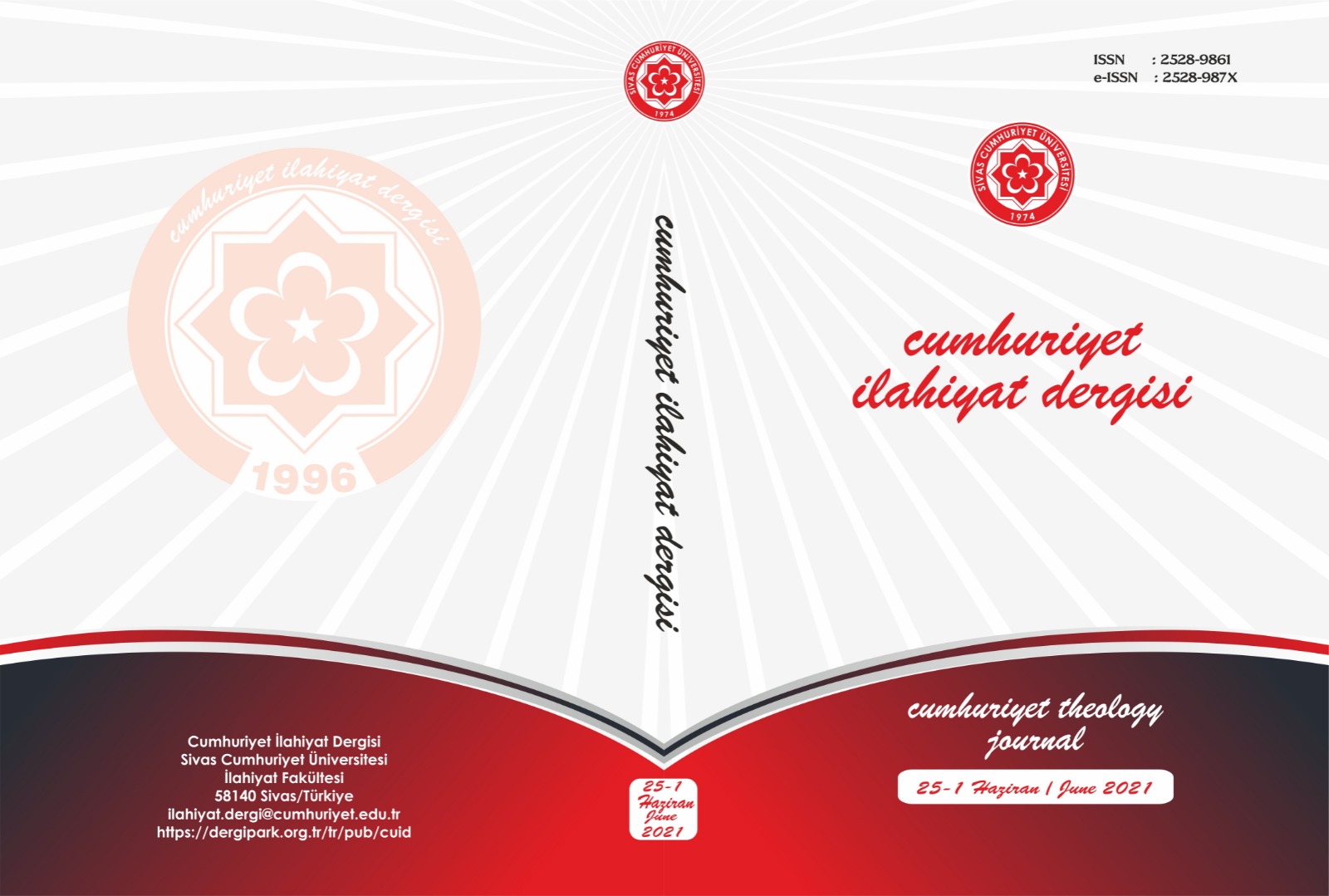İbn Teymiyye’nin İbn Sînâ’ya el-İşârât bağlamında Zorunlu Varlığın Birliğinin İspatına Yönelik Eleştirileri
The Critiques of Ibn Taymiyya Against the Evidence on the Unity of the Nexessity Existent in al-Is̲h̲ārāt of Avicenna
Author(s): Ersan TürkmenSubject(s): Theology and Religion, Islam studies, Middle-East Philosophy
Published by: Cumhuriyet Üniversitesi İlahyat Fakültesi
Keywords: Islamic Philosophy; Avicenna; Ibn Taymiyya; Unity of Necessary Existent; Kitāb al-Is̲h̲ārāt wa’ l-tanbīhāt;
Summary/Abstract: In this study, the rational criticism directed by Ibn Tayymiyya (d. 1338) to the philosophical evidence used to prove the unity of the necessary existent in the book Kitāb al-Is̲h̲ārāt wa al-tanbīhāt, which is accepted as a constitutive text in the history of Islamic philosophy, is examined. Author of the aforementioned book Avicenna (d. 1037) tries to prove the unity of the necessary existent from different ways in his books. Kitāb al-Is̲h̲ārāt wa al-tanbīhāt is a book that includes one of these ways. The evidence that Avicenna uses in that book comprises of two preliminaries. The first preliminary is made up of specifying the relation between the thing that the different perceptible particular entities are common and are different. The second one is based on proving the existence not to be the cause of essence by centering the difference of existence and essence. Ibn Taymiyya, who criticizes philosophers in many ways, criticizes this evidence used by Avicenna in his work Mes’eletün fî tevḥîdi’l-felâsife. Rejecting the logic of Mashshaiyyun as science, Ibn Taymiyya also tried to refute the philosophical and logical rules that philosophers accept and use. In this context, Ibn Taymiyya argues that not only the preliminary presuppositions of the philosopher's argument to prove the unity of the necessary being, but also that the logical principles and rules previously accepted by the philosopher are false. One of the most important issues criticized by the thinker in relation to the subject is the reality of concepts, the existence of universals, how universals are moved to particulars, and the state of quiddity. According to him, concepts are mental and universals do not have a reality in the external world. Again, he thinks that universals like humanity are attributed to particulars as attributes, and therefore, in a way, he denies the universal being universal. Because, according to Ibn Taymiyya, a certain attribute of a being that is particular cannot be universal unlike itself. According to the thinker, the commonality in the concepts that logicians call universal consists only of a linguistic partnership. Undoubtedly, it can be said that Ibn Taymiyya's thought on the issue of concepts is close to nominalistic approach in a way. But he does not directly deny the reality of the concepts. For, according to him, the concepts that are universally formed in the minds are actually realized particularly. That is to say, the universal humanity has been realized particularly in individuals such as Ahmet and Mehmet. In other words, because the humanity in individuals is particular, Ahmet's humanity is different from Mehmet's humanity. For this reason, there can be no real partnership among the examples given. In this context, the unity distinction made by Ibn Taymiyya in understanding his thoughts is helpful. According to him, unity is of two types, real and qualitative. Real unity is the unity that exists in the essence of the individual. The qualitative unity is the unity that exists between the things under the concept of the universal. However, the qualitative unity is not considered as a unity since it does not occur in the external world. In fact, this is what distinguishes Ibn Taymiyya from nominalist thinkers. If we turn back to the evidence of Avicenna, based on the objections that Ibn Taymiyya made to the logic and philosophical principles of Mashshaiyyun in general, we can say that the thinker criticized the precedents of this argument by emphasizing the knowledge that universal concepts are intellectual entities. He emphasizes the examples that Avicenna uses to show the affiliation among the things are only made up of universal notions and alleges them not to have perceptible entity. Thus, he says that there is not a real affiliation among different particular entities that have perceptible existence. As to the second preliminary, Ibn Taymiyya says that this preliminary is also inaccurate for the reason that it is, like the first preliminary, based on the knowledge that the intellectual entities had come true in the physical world. According to him, the essence is made up of intellectual conceptualization. Therefore, it has not physical reality. After criticizing the preliminaries in this manner, Ibn Taymiyya says that the analogy that consists of these preliminaries is also erroneous. Because the analogy that is based on erroneous preliminaries does not give a correct result.
Journal: Cumhuriyet İlahiyat Dergisi
- Issue Year: 25/2021
- Issue No: 1
- Page Range: 369-383
- Page Count: 15
- Language: Turkish

